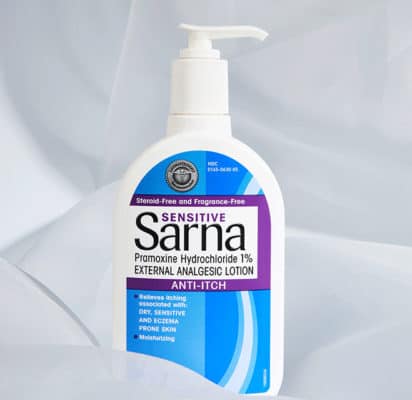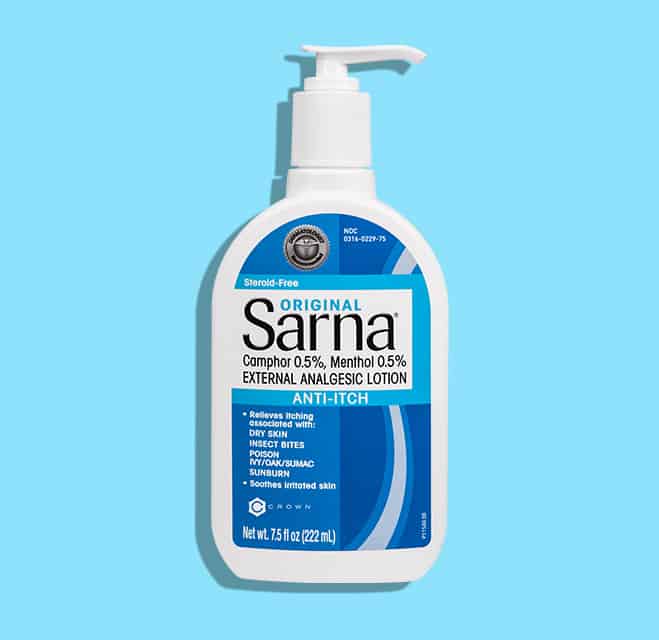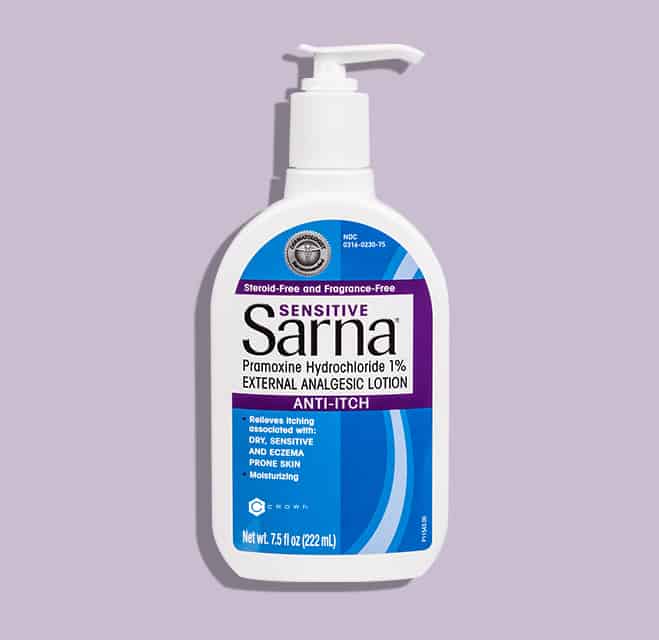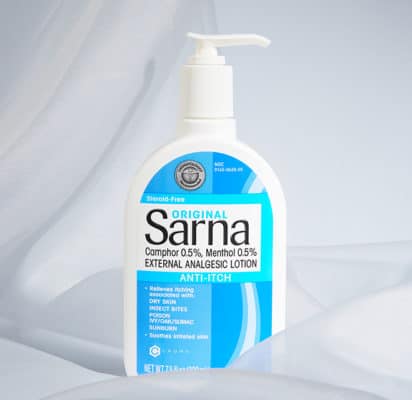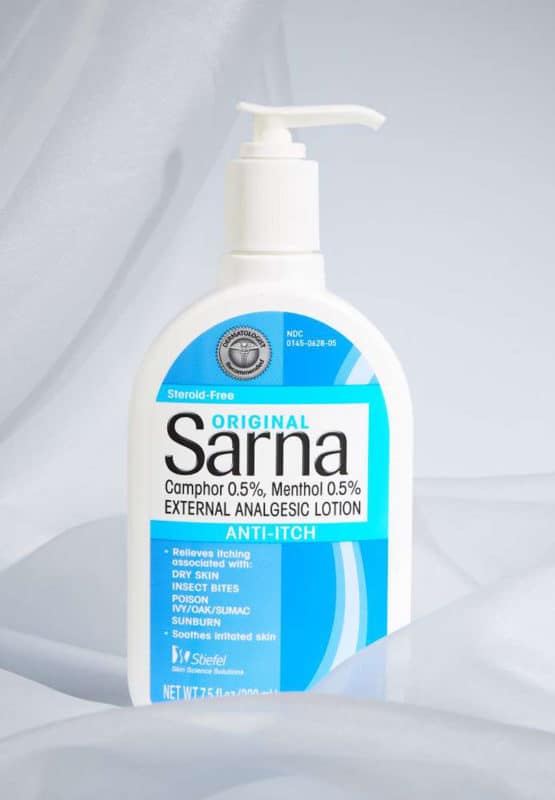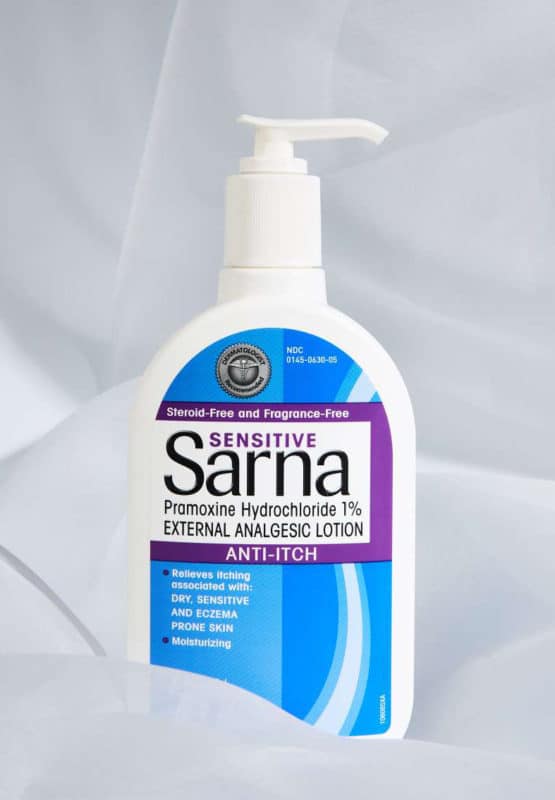
Dr. Jenny Liu | Dermatologist
Dr. Jenny Liu is a dermatologist who wears many hats. Not only is she board-certified in dermatology, she is also an assistant professor in the Twin Cities. Her academic interests include complex medical dermatology, ethnic dermatology and medical education. When she isn’t teaching others about their skin or developing care plans, Jenny writes for her blog, Derm Talk Docs. She started the blog not only to educate others, but also to share her passion for motherhood, fashion and skincare.
We asked Dr. Jenny to share her advice for those living with eczema and answer some frequently asked questions about the condition. Whether you’re a parent looking for tips on how to care for your child’s eczema or simply want to learn more, this article is a great place to start.
Causes and Irritants of Eczema

What Causes Eczema?
Eczema is a chronic inflammatory skin condition that often starts during infancy but can occur at any age. It is often associated with seasonal allergies and asthma. The most common form of eczema is atopic dermatitis.
Atopic dermatitis will often run in families. Certain gene mutations have been identified that play a role in eczema. The cause of eczema stems from dry skin, which ultimately leads to poor barrier function hence subsequent inflammation.
What are the most common irritants that can cause eczema to flare?
Dry skin – when your skin gets too dry it can become brittle, rough or tight which can lead to an eczema flare up. This is especially common in dry, cold weather, which is why it’s important to moisturize eczema prone skin during the winter. Some patient’s eczema can flare with heat and sweat, stress, wool or scratchy clothing. In some individuals, allergens such as fragrance or preservatives may also play a role.
Are there any fabrics that I should avoid wearing?
Wool, scratchy fabric, or anything that is non-breathable will increase sweating or friction on skin. Cotton clothing and bedding keep the skin cool and allow it to breathe, whereas synthetic fabrics and wool can irritate skin.
If sweating makes things worse, can I still exercise?
Yes. Exercise will help with stress, which will indirectly benefit your skin’s health. Inflamed skin will burn, so consider applying a barrier cream such as petroleum before exercise to minimize irritation from sweating.
Does the sun have any effect on eczema?
Yes.For most people sun will improve their eczema. Narrowband phototherapy is a medical grade light treatment that works similar to sun—but does not cause skin cancer—in treating eczema. However, for a rare group of individuals, sun can worsen eczema. Overheating can lead to sweating which can cause an eczema flare up. If you have severe eczema and you are going to be outdoors you may want to limit your exposure to direct sunlight. Keep as cool as possible and stay in shady areas. Also, don’t forget to wear sunscreen as sunburn can cause inflammation and make eczema worse.
How can I curb my itching?
The first step to soothing itching skin is developing a daily gentle skin care routine. See below for recommendations on skin care. Moisturizers are very important. Always choose an emollient free of fragrances, perfumes and additives. Apply a topical anesthetic that contains pramoxine such as Sarna Sensitive lotion – this will temporarily relieve the itch associated with eczema. Other treatments such as emollients and antihistamines can also be effective to stop the itch scratch cycle.
Advice for Parents of Children with Eczema
What advice do you have for parents of children with eczema?
Eczema stems from dry skin. We need to treat inflamed skin, but more important is establish good habits for gentle skin care in preventing/minimizing flares of eczema
Do I need to buy special soaps lotions and laundry detergent if my child has eczema?
In general, we recommend fragrance free, preservative free soap, detergents, and moisturizers. I often recommend Sarna Sensitive lotion to patients who have eczema and dry skin. It contains pramoxine hydrochloride which is a numbing medicine that relieves and reduces itching. Sarna lotion is free from fragrances and is safe to use daily.

Is there anything you can recommend to help reduce or soothe itching at night?
Keeping bedroom temperatures cool (heat exacerbates the sensation of itch), and take antihistamines as needed. Cool compresses may temporarily relieve symptoms or use products such as Sarna Sensitive to numb the itch. Most importantly avoid scratching the skin.
Can eczema cause other complications?
Chronically inflamed skin will often lead to infections, thickening and discolored skin. This can be avoided by establishing a daily skin care routine that reduces the opportunity for an eczema flare up. In younger kids, poor sleep due to itching has been linked to learning disorders such as ADHD. If your child is losing sleep associated with eczema, talk to your dermatologist about developing a treatment plan that addresses sleep loss. This may include bathing and moisturizing, medicine to get the eczema under control, antihistamines, keeping the bedroom temperature cool and using breathable, cotton bedding that doesn’t irritate skin.
Can eczema lead to any other skin conditions?
Eczema can not only cause skin infections but also lead to changes in the texture, color and quality of the skin. This thickening and discoloration called lichen simplex chronicus, occurs from the chronical inflammation along with repeated injury to the skin such as rubbing and or scratching. This is best avoided by preventing and treating eczema and controlling the impulse to scratch. Using anti-itch lotions such as Sarna Sensitive is an effective way to temporarily relieve the sensation of itch and to avoid trauma to skin
Advice for Adults Living with Eczema

How should I explain my condition to my spouse family and friends? What if anything should I say to my boss and co-workers?
Eczema is a chronic inflammatory condition of the skin that stems from dry skin. Unfortunately, there is no cure. You may have great days and sometimes really bad days when your eczema flares. Gentle skin care is key for prevention of flare ups.
Topical, and sometimes in conjunction with oral medicines, may be prescribed to control the inflammation.
If I have eczema, are my children likely to end up with eczema or atopic dermatitis?
Yes, there is a high chance. If one patient is atopic, >50% of his/her kids will develop allergic symptoms. The rate is >80% if both parents are atopic.
Are there any foods or supplements I should avoid?
In general, for adults, foods are unlikely to cause eczema flares. In babies and kids, this is controversial. See your pediatric dermatologist, but only a small percent of kids will see benefits from avoiding certain foods for their eczema.
Are there any changes I can make around my home to help my skin?
Adding a humidifier is a great way to help manage your eczema. By adding moisture to the air, the skin barrier will become smoother and reduce the chance of an eczema flare. Keeping the temperature cool will help you to avoid overheating, which can be a trigger for eczema. Bath or shower daily in lukewarm water and keep them under 10 minutes – this length of time will give your skin enough time to absorb the water it needs, but won’t strip away the skin barrier. Pat skin dry and apply any topical treatments followed by a fragrance free moisturizer. Keep moisturizers around the house and try to apply after each hand wash to avoid hand dermatitis in the winter.
Do I need to make any changes in diet or exercise or how much I rest?
In general, eating a healthy well-balanced diet is good for overall health. Avoid a lot of pro inflammatory foods such as processed foods and high glycemic index foods. Although these do not cause eczema, in excess they can cause your body to be in a chronic pro inflammatory state, which besides eczema, can lead to other issues such as diabetes and premature aging to name a few.
Are there ways I can treat my skin to reduce my chances of another flare-up?
Daily gentle skin care:



